Key Takeaways
1. Embrace the agile coach mindset: servant leadership and continuous improvement
An agile coach models agile all the time, and just by being teaches all the time.
Servant leadership is the foundation of effective agile coaching. As a coach, your primary role is to serve the team, not to be served by them. This involves putting the team's needs first, empowering them to make decisions, and fostering their growth and self-organization.
Continuous improvement is both a personal and team practice. Agile coaches must constantly work on themselves, developing their skills and self-awareness. This personal growth enables coaches to better guide teams in their own continuous improvement journey.
Key aspects of the agile coach mindset include:
- Trusting the team's ability to solve problems
- Embracing change and adaptability
- Focusing on outcomes rather than processes
- Promoting transparency and open communication
- Encouraging experimentation and learning from failure
2. Master core agile practices and instill them in your team
Agile is easy to get going yet hard to do well.
Deep understanding of agile principles and practices is crucial for effective coaching. Coaches must not only know the mechanics of agile frameworks like Scrum or Kanban but also grasp the underlying values and reasons behind each practice.
Teaching and reinforcing agile practices is an ongoing process. Coaches should:
- Start with the basics, ensuring the team understands the core principles
- Gradually introduce more advanced concepts as the team matures
- Regularly revisit and reinforce agile practices to prevent backsliding
- Help the team adapt practices to their specific context while maintaining agile values
Key agile practices to focus on include:
- Timeboxed iterations (sprints)
- Daily stand-up meetings
- Sprint planning and retrospectives
- Continuous integration and delivery
- User stories and backlog management
- Sustainable pace and work-in-progress limits
3. Cultivate collaboration and high performance through effective facilitation
Collaboration happens in present time; it exists only while you are doing it.
Skilled facilitation is essential for fostering collaboration and driving team performance. Agile coaches must create an environment where team members feel safe to share ideas, take risks, and work together effectively.
Techniques for improving collaboration include:
- Encouraging active listening and building on others' ideas
- Using visual aids and collaborative tools
- Rotating facilitation responsibilities among team members
- Promoting cross-functional work and skill sharing
To cultivate high performance:
- Set clear, challenging goals aligned with the team's vision
- Celebrate successes and learn from failures
- Encourage healthy competition and continuous improvement
- Foster a sense of team identity and shared purpose
Effective coaches balance when to intervene and when to step back, allowing the team to self-organize and take ownership of their processes and outcomes.
4. Navigate conflict and foster constructive disagreement
Collaboration needs cooperation as its base, but it adds the essential ingredient for yielding innovative, breakthrough, astonishing results: emergence.
Conflict is inevitable in collaborative environments, but it can be a powerful force for innovation when managed effectively. Agile coaches must help teams navigate conflicts constructively, turning disagreements into opportunities for growth and breakthrough ideas.
Strategies for managing conflict:
- Encourage open, respectful communication
- Focus on interests rather than positions
- Use structured problem-solving techniques
- Promote empathy and perspective-taking
To foster constructive disagreement:
- Create a safe space for diverse opinions
- Encourage devil's advocacy and alternative viewpoints
- Teach techniques for giving and receiving feedback
- Model how to disagree respectfully and productively
Coaches should help teams recognize that some conflicts are unsolvable and teach them to navigate these situations by focusing on shared goals and increasing positive interactions.
5. Coach individuals and teams to reach their full potential
As their coach, help them start their journey toward high performance by simply setting your expectation that they will achieve it.
Individual coaching involves working one-on-one with team members to help them develop their skills, overcome challenges, and align their personal goals with team objectives. This requires active listening, asking powerful questions, and providing constructive feedback.
Team coaching focuses on improving collective performance and fostering a shared sense of purpose. Coaches should:
- Help teams set and work towards ambitious goals
- Facilitate team-building activities and retrospectives
- Identify and address team dynamics issues
- Encourage shared accountability and mutual support
Key coaching skills to develop:
- Active listening and observation
- Asking powerful, open-ended questions
- Providing timely, specific feedback
- Empowering others to find their own solutions
- Balancing challenge and support
6. Balance teaching, mentoring, and problem-solving in your coaching approach
To coach teams to do agile well, you need not add new artifacts, events, or roles to the agile framework you have chosen. Instead, find things that help express the challenging, mighty, subtle, and deep aspects of each element already present in the framework.
Flexible coaching styles are essential for meeting teams where they are and helping them progress. Coaches must adapt their approach based on the team's maturity level and current needs.
Three key coaching styles to balance:
- Teaching: Providing direct instruction on agile practices and principles
- Mentoring: Sharing experiences and guiding team members' growth
- Problem-solving: Helping teams overcome obstacles and find solutions
Factors to consider when choosing a coaching style:
- Team's experience level with agile
- Complexity of the current challenge
- Team dynamics and individual personalities
- Organizational context and constraints
Effective coaches seamlessly transition between these styles, knowing when to provide direct guidance and when to step back and let the team learn through experience.
7. Recognize and overcome common agile coaching pitfalls
Coaching Agile Teams is a good candidate to become dog-eared on my desktop rather than looking good on my bookshelf.
Self-awareness is crucial for avoiding common coaching pitfalls. Coaches must regularly reflect on their own behaviors and biases to ensure they're not inadvertently hindering the team's progress.
Common agile coaching failure modes to watch out for:
- The Expert: Always having the "right" answer
- The Micromanager: Over-controlling team processes
- The Hands-off Observer: Failing to provide necessary guidance
- The Bureaucrat: Focusing on process over outcomes
- The Rescuer: Solving problems for the team instead of empowering them
To overcome these pitfalls:
- Regularly seek feedback from teams and peers
- Practice mindfulness and self-reflection
- Cultivate a growth mindset and embrace learning opportunities
- Stay focused on the team's goals and needs, not your own ego
8. Continuously evolve your coaching skills and adapt to team needs
What is at stake here?
Lifelong learning is essential for agile coaches. The field of agile is constantly evolving, and coaches must stay up-to-date with new practices, tools, and insights to provide the best support to their teams.
Ways to continue growing as an agile coach:
- Attend conferences and workshops
- Read widely on agile, leadership, and related topics
- Participate in coach communities and peer learning groups
- Seek out diverse experiences with different teams and industries
- Obtain relevant certifications and training
Adapting to team needs requires:
- Regular assessment of team maturity and challenges
- Flexibility in coaching approaches and techniques
- Openness to feedback and willingness to change
- Experimentation with new tools and methods
Remember that becoming an expert agile coach is a journey, not a destination. Embrace the process of continuous improvement and model the agile mindset for your teams.
Last updated:
FAQ
What's Coaching Agile Teams about?
- Focus on Agile Coaching: Coaching Agile Teams by Lyssa Adkins is a guide for ScrumMasters, Agile Coaches, and Project Managers transitioning to agile methodologies, emphasizing the role of coaching in team performance.
- Role of the Coach: It outlines various roles an agile coach can take, such as teacher, facilitator, and conflict navigator, and highlights the importance of emotional intelligence.
- Practical Techniques: The book provides practical techniques and frameworks to help teams navigate challenges and foster continuous improvement.
Why should I read Coaching Agile Teams?
- Enhance Coaching Skills: It is essential for improving coaching skills within agile environments, offering insights into effective techniques for better team performance.
- Broaden Understanding of Agile: The book deepens understanding of agile principles and practices, aiding in their effective implementation.
- Real-World Applications: Adkins shares experiences and lessons learned, providing relatable examples for readers to apply in their own coaching situations.
What are the key takeaways of Coaching Agile Teams?
- Agile Coaching Matters: Agile coaching is crucial for teams to thrive in complex environments, helping them navigate challenges and unlock potential.
- Self-Organization: Teams must be self-organizing, with the coach facilitating this process rather than dictating actions.
- Continuous Learning: Both coaches and teams should embrace continuous learning and adaptation, fostering a mindset of growth and exploration.
What are the best quotes from Coaching Agile Teams and what do they mean?
- “A ScrumMaster who takes teams beyond getting agile practices up and running into their deliberate and joyful pursuit of high performance is an agile coach.”: Highlights the transformative role of an agile coach in fostering continuous improvement.
- “It’s the team’s commitment, not yours.”: Emphasizes that success responsibility lies with the team, encouraging empowerment and ownership.
- “The art of teaching is the art of assisting discovery.”: Underscores the coach's role as a facilitator of learning, guiding teams to find their own solutions.
What is the Shu Ha Ri model mentioned in Coaching Agile Teams?
- Stages of Mastery: Describes three stages of mastery in agile practices: Shu (following the rules), Ha (breaking the rules), and Ri (being the rules).
- Non-Linear Progression: Progression is not linear; teams may exhibit characteristics of multiple stages simultaneously, allowing for nuanced understanding.
- Application in Coaching: Coaches tailor their approach based on the team's current stage, providing appropriate support and guidance.
How does Coaching Agile Teams define collaboration versus cooperation?
- Collaboration Defined: Involves team members building on each other's ideas, leading to innovative outcomes requiring trust and openness.
- Cooperation Defined: Characterized by working together towards a common goal without deep collaboration, focusing on smooth coordination.
- Importance of Both: While cooperation is essential for basic teamwork, collaboration is necessary for breakthrough results, requiring a balance.
What are the different roles of an agile coach as described in Coaching Agile Teams?
- Teacher Role: Involves simplifying complex concepts and ensuring everyone understands their roles, especially during team start-ups.
- Facilitator Role: Guides discussions and decision-making processes, fostering collaboration and ensuring all voices are heard.
- Conflict Navigator: Helps teams address and resolve conflicts constructively, promoting healthy dialogue and team dynamics.
How can I effectively coach individuals one-on-one as described in Coaching Agile Teams?
- Establish a Safe Environment: Create a space for open dialogue by guaranteeing confidentiality and safety, encouraging sharing without fear of judgment.
- Use Powerful Questions: Employ open-ended questions that invite introspection and self-discovery, helping individuals explore their own solutions.
- Set Clear Goals: Help identify specific actions for improvement, establishing accountability to ensure follow-through and progress.
How does Coaching Agile Teams suggest handling conflict within teams?
- Recognize Conflict as Natural: Conflict is a natural part of team dynamics, and coaches should help teams navigate it constructively.
- Use Conflict as a Learning Opportunity: Encourage viewing conflict as an opportunity for growth, leading to deeper understanding and stronger relationships.
- Facilitate Open Conversations: Help team members express feelings and perspectives, leading to resolution and a healthier team environment.
What techniques does Coaching Agile Teams recommend for facilitating agile meetings?
- Set Clear Agendas: Establish clear agendas to keep the team focused, maximizing productivity and engagement.
- Encourage Participation: Use techniques like round-robin sharing to ensure all voices are heard and valued.
- Hold Timeboxes: Maintain strict timeboxes to keep discussions concise and focused, respecting everyone's time.
How can I support my own growth as an agile coach according to Coaching Agile Teams?
- Continuous Learning: Engage in ongoing education and self-improvement through workshops, courses, and relevant literature.
- Seek Feedback: Regularly seek feedback from peers and team members to identify areas for improvement and enhance coaching effectiveness.
- Practice Self-Reflection: Reflect on coaching experiences to recognize patterns, successes, and areas for growth, aiding personal development.
What is the significance of emotional intelligence in agile coaching as discussed in Coaching Agile Teams?
- Understanding Team Dynamics: Emotional intelligence helps coaches understand team emotions and motivations, crucial for navigating conflicts and fostering collaboration.
- Self-Awareness: Coaches with high emotional intelligence are more self-aware, recognizing biases and triggers, enabling effective responses.
- Empathy and Support: Fosters empathy, allowing coaches to support team members through challenges, creating a safe and valued environment.
Review Summary
Coaching Agile Teams receives high praise for its comprehensive guidance on agile coaching. Readers appreciate its practical advice, real-world examples, and focus on personal growth. Many consider it essential reading for agile practitioners, especially those transitioning from project management. The book is lauded for its insights on team dynamics, collaboration, and conflict resolution. While some find it dense or repetitive in parts, most reviewers value its depth and applicability. It's seen as a valuable resource for both new and experienced coaches.
Similar Books

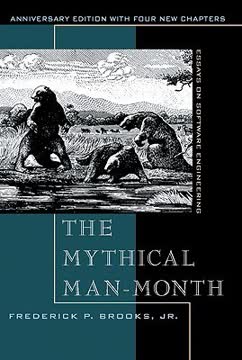

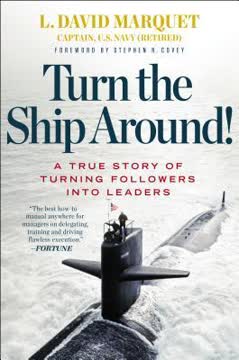
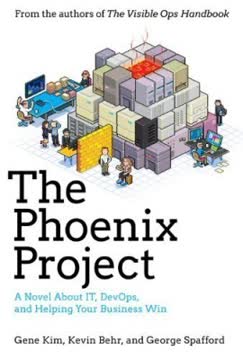

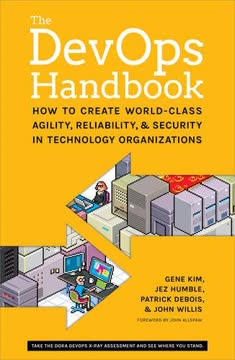
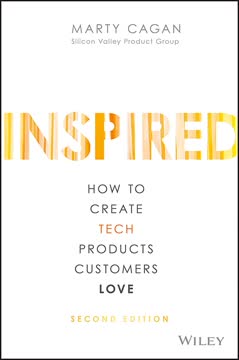


Download PDF
Download EPUB
.epub digital book format is ideal for reading ebooks on phones, tablets, and e-readers.




